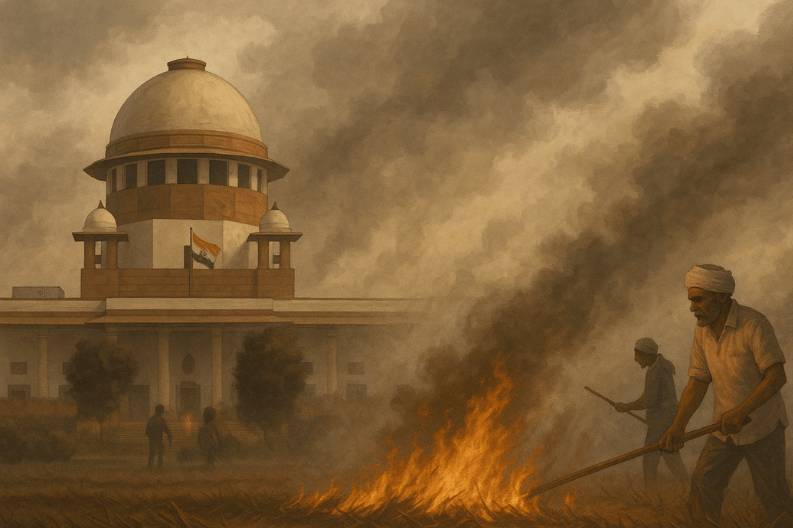Supreme Court addresses stubble burning in Punjab, highlighting its dangerous impact on Delhi-NCR’s worsening air quality. This problem peaks every October and November during harvest season, as farmers burn leftover stubble to clear fields quickly. The practice not only pollutes Punjab but also spreads harmful smog to Delhi and Haryana.
Every winter, Delhi-NCR is covered in dense smog, causing breathing difficulties and serious health issues. The Supreme Court stressed that this pollution is not a local concern but a regional crisis that affects millions. It suggested stricter enforcement, even hinting that jail terms for offenders could work as a deterrent.
To strengthen pollution control, the court directed the Central Pollution Control Board and the Commission for Air Quality Management (CAQM) to fill all vacant posts. With more staff, these agencies can coordinate better and enforce rules effectively, especially in Punjab where stubble burning remains widespread.
The smoke released during burning carries fine particles and toxins into nearby cities, worsening public health risks. While farmers rely on burning due to time and cost pressures, the court emphasized the need for cleaner alternatives.
Experts recommend solutions like composting, biofuel production, and soil enrichment through crop residue management. With government and community support, these methods can reduce reliance on burning while benefiting farmers.
The Supreme Court also reminded states that pollution does not respect borders. It called for collective action involving governments, communities, schools, and families. By promoting awareness and cooperation, society can work toward sustainable solutions.
Ultimately, the court underlined that clean air is a basic right and urgent steps are needed to protect it. In conclusion, the Supreme Court addresses stubble burning as a critical challenge, urging strict enforcement, regional cooperation, and farmer-friendly alternatives to safeguard public health.



